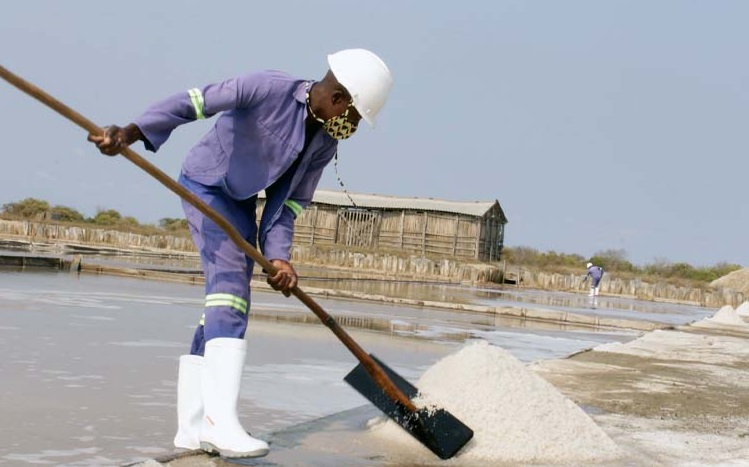Mozambique: GEF to disburse 4.8 million dollars for e-waste management
Matola salt pans and (other) possible impacts of floating energy production project – Carta

Image: Carta
Eight salt pans in Matola, Maputo province, which employ about 100 workers and produce salt for about three million citizens, could close if the Floating Energy Production Project in Matola is implemented.
At issue is the floating energy production project to be anchored near Porto da Matola, Maputo province. The infrastructure will have the capacity to produce 415 MW of energy, generated from fuel oil produced by the crude oil refining industry, and will be operational for a period of three years.
If implemented by Karpowership, a Turkish subsidiary of the Karadeniz Holding Companies Group in partnership with Electricidade de Moçambique (EDM), the project will include the construction of a four-kilometre power transmission line between the power generating plant and the Matola substation.
The project, which is still in its embryonic stage, went to initial public consultation regarding environmental impact this Thursday. However, John Hahon, technical director of Impacto, the company carrying out the environmental studies, says that potential harmful impacts could only transpire in the event of oil leakage or spillage, fire or explosion, or collisions with other vessels.
“The most significant potential impact that could occur is an accidental oil spill, which could have an impact on fisheries and other industries located close to the coast, such as the salt pans. However, the probability of this happening is low,” Hahon stressed.
In turn, Garcez Narcy, Vice-President of the Association of Salt Producers and Traders, said that salt producers were neither for nor against the Karpowership project, pending consideration of the environmental impacts that it might result from harmful pollutants they might use.
The Association said that it had not been contacted for public consultation. “We came here because we received a message from a friend who told us that there is an issue that will affect our salt pans, but the organisers of the event claim that the invitation was sent to a newspaper, and we did not see it”.
“If the project, which is bigger than the salt pans, goes ahead, there is no alternative but to ask for compensation, as this will affect us and also the around three million people who will stop consuming national salt and will have to import it,” Narcy said. “Another reason why the project should not go ahead is because of the cumulative pollutants. We are talking about eight salt pans nearby which employ around 300 workers and could close.”
Karpowership representatives promised that additional detailed studies relating to salt production would be carried out.
As for compensation, John Hahon explained that the communities which lose their agricultural fields and crops would be entitled to compensation based on what each one owned.
“We are going to make a compensation plan with the size of the fields, to determine how much each one should receive,” he explained.
At the meeting, representatives of Mozambican NGO Justiça Ambiental sought to establish whether this was the same project that was rejected in South Africa for failing to respect environmental impact rules. In response, it was said that it was not the same, as the project in South Africa was bigger, but without much more detail than that.
In the same vein, Centro Terra Viva enquired about the experience of the project in other countries. The organisers of the meeting responded that a similar project was already being developed in Nacala, in Nampula province (Mozambique), and that to date it had not experienced any setbacks.
READ: Karpowership appeal fails in blow to South Africa power supply
But, taking into account the various impacts that may arise from the project, the organisation declared itself not in favour.
Meanwhile, EDM representative Rute Rangel said that this project should move forward to leverage other renewable energy initiatives.
Without giving details of the project budget, Karpowership said that the consultation would go ahead and then be shared with the public, taking into account that this was the first of several that would take place before the draft environmental impact study was presented to the Ministry of Land and Environment.












Leave a Reply
Be the First to Comment!
You must be logged in to post a comment.
You must be logged in to post a comment.